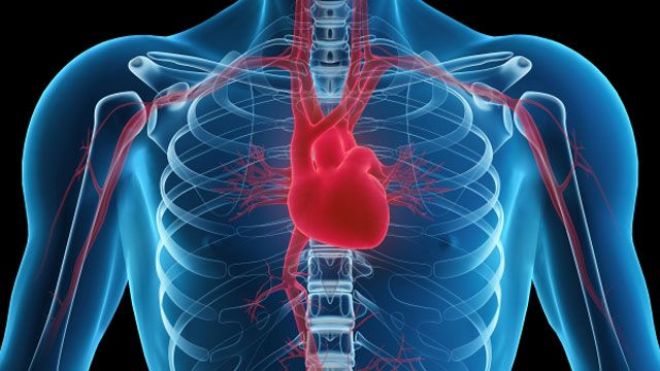A new study has pinpointed a single gene that appears to both strengthen the heart –  without exercise – and halt the spread of breast cancer. Researchers at Case Western Reserve University found that the gene HEXIM1, discovered in 2012, not only suppressed the spread of breast cancer in mouse models, but also made the mice’s hearts healthier. with respect to enhanced strength and size. Normally, exercise helps to strengthen the heart and increase its size. However, researchers found that when the HEXIM1 gene was re-expressed in adult mouse hearts, their hearts grew in weight and size - without exercise. Researchers say this discovery has the potential to help treat people with cardiovascular disease. “Our Cleveland-based collaborative research teams revealed that increasing HEXIM1 levels brought normal functioning hearts up to an athletic level, which could perhaps stand up to the physical insults of various cardiovascular diseases,” said Michiko Watanabe, professor of pediatrics, genetics, and anatomy at Case Western Reserve School of Medicine and director of Pediatric Cardiology Fellowship Research at Rainbow Babies and Children's Hospital. Common cardiovascular diseases like hypertension and heart failure create a shortage of both oxygen and necessary nutrients in the heart muscles, preventing blood from circulating at a satisfactory rate. This ultimately results in a distended heart, which can continually grow weaker and has the potential to stop at any given moment. However, researchers showed that the artificial enhancement of HEXIM1 led to increased blood vessel growth and enhanced overall functionality of the heart. In essence, HEXIM1 could potentially serve as a therapeutic target for the treatment of heart disease. Researchers also found that HEXIM1 increased the number and density of blood vessels in the heart, decreased the animals’ resting heart rates and allowed the transgenic heart to circulate more blood per heartbeat.  The study also demonstrated that untrained genetically altered mice with the HEXIM1 gene were capable of running twice as long compared to unaltered mice. Lead researcher Monica Montano, associate professor of pharmacology, Case Comprehensive Cancer Center member, and creator of the mice for the heart and breast cancer research, was very proud of the research’s findings. “Our promising discovery reveals the potential for HEXIM1 to kill two birds with one stone – potentially circumventing heart disease as well as cancer, the country's leading causes of death,” Montano stated. The study’s results add to previous findings from the team’s research, which revealed last year that increasing levels of HEXIM1 expression led to the inhibition of breast cancer metastasis. Given the discovery of the gene’s two therapeutic benefits, the researchers are currently developing a more potent version of the drug hexamethylene-bisacetamide, which is meant to enhance HEXIM1 expression. “Many cancer drugs have detrimental effects on the heart,” said Dr. Mukesh K. Jain, professor of medicine and director of Case Cardiovascular Research Institute at Case Western Reserve School of Medicine. “It would be beneficial to have a cancer therapeutic with no adverse effects on the heart and perhaps even enhance its function.” The research was published in the peer-reviewed journal Cardiovascular Research.source : http://www.foxnews.com/health/2013/06/14/newly-discovered-gene-strengthens-heart-fights-breast-tumors/
